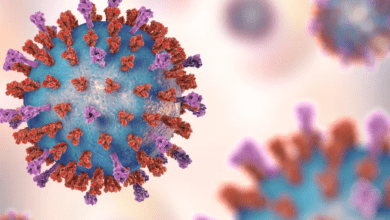Novel Mechanism Unveiled to Enhance Cancer Immunotherapies

A groundbreaking study led by researchers at the University of Aberdeen, in collaboration with the University of Liverpool and the Centre for Cancer Immunology at the University of Southampton, has identified a novel mechanism that could significantly improve cancer treatment through immunotherapy.
Cancer Immunotherapies
The focus of the research was on CTLA-4, a critical cell surface molecule known as a ‘checkpoint’ receptor that plays a pivotal role in maintaining immune balance and tolerance. While CTLA-4 prevents the immune system from becoming overly active at the conclusion of a standard immune response, cancer cells exploit it to evade immune attacks.
The researchers developed antibodies targeting CTLA-4, showing promise in treating various cancers. However, the precise mechanisms behind their anti-tumor effects remained unclear, and concerns about immune toxicity persisted.
The study’s breakthrough reveals an overlooked form of CTLA-4, called soluble CTLA-4 (sCTLA-4), released from the cell. The team investigated sCTLA-4’s potential impact on cancer immunotherapy, exploring its functional properties and testing the effectiveness of a specific antibody targeting sCTLA-4.
President Biden Enacts Groundbreaking Reform to Transform Organ Transplant System
Published in Molecular Therapy, the study demonstrated that tumors expressing sCTLA-4 hindered the activity of cytotoxic T-cells responsible for killing cancer cells, leading to accelerated cancer growth and spread. However, when the researchers blocked sCTLA-4 with a specific antibody, the suppression was reversed, allowing T-cells to locate and attack the cancer.
Dr. Frank Ward from the University of Aberdeen emphasized the importance of identifying and removing molecules that enable cancers to escape immune system detection. He stated, “Together with my colleagues, we have shown that when cancers produce sCTLA-4, they grow faster, and selectively blocking its activity should allow an effective route to improved immunotherapies.”
This groundbreaking discovery opens new avenues for enhancing the effectiveness of cancer immunotherapies by targeting sCTLA-4, providing hope for more targeted and efficient treatments in the ongoing battle against cancer.




